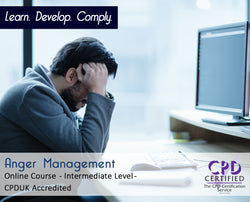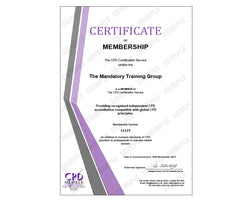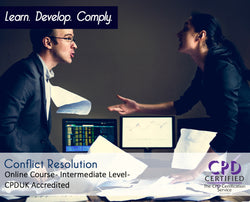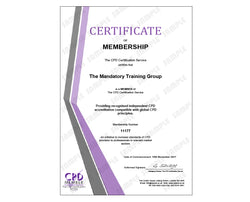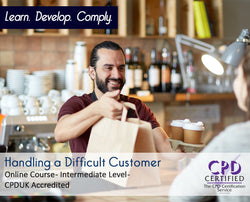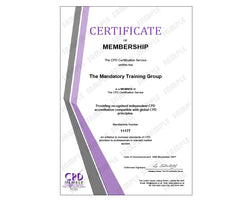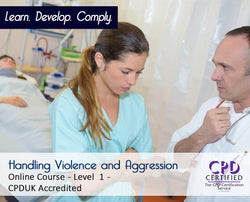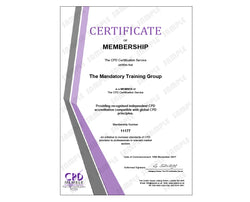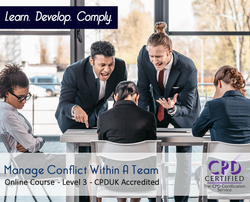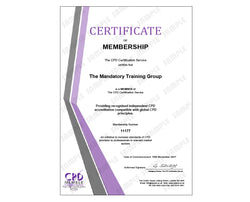You have no items in your shopping basket.
Mon - Fri 9AM - 5PM
+44 24 76 1000 90
You have no items in your shopping basket.
You have no items in your shopping basket.
Conflict Management eLearning Courses & Training - ComplyPlus LMS™ - The Mandatory Training Group UK -
Conflict management and resolution in the UK encompass a broad range of practices aimed at addressing disputes effectively within organisations and between individuals. Conflict management refers to the proactive strategies and processes implemented to prevent conflicts from escalating and to manage them effectively when they arise. This includes establishing clear communication channels, setting up mediation and negotiation frameworks, and fostering an organisational culture that values diversity and inclusivity.
Conflict resolution, on the other hand, focuses on resolving disputes once they have occurred. This involves identifying the underlying causes of conflict, facilitating dialogue between the parties involved, and reaching an agreement that addresses the needs and interests of all sides. Techniques such as mediation, arbitration, and conciliation are commonly used in the UK to achieve resolution. Both conflict management and resolution are crucial for maintaining harmonious relationships, enhancing productivity, and ensuring a positive working environment in various settings, including healthcare, education, and corporate sectors. #ConflictManagement
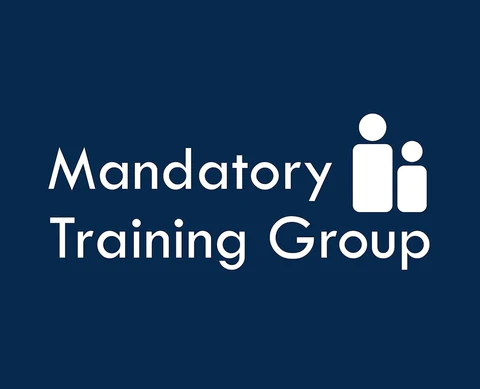
In the UK, conflict management and conflict resolution courses and training are designed to equip individuals with the skills and techniques necessary for effectively handling and resolving conflicts in various settings, including workplaces, communities, and personal relationships. These courses cover various topics, such as understanding the nature and sources of conflict, communication strategies to prevent and manage conflicts, negotiation techniques, mediation processes, and the principles of arbitration and conciliation.
Training programs are available for professionals across sectors, including healthcare, education, and business, and are offered by universities, professional bodies, and specialised training providers. They often combine theoretical knowledge with practical exercises to ensure learners can apply their skills in real-world situations. #ConflictResolution
Discover the benefits of our conflict management and resolution eLearning courses on ComplyPlus LMS™
These terms collectively cover the spectrum of approaches and methodologies to manage and resolve conflicts across various contexts. #WorkplaceConflict
Enhance your skills with our conflict management and resolution online learning on ComplyPlus LMS™
In the UK, legislation, regulations, and expert guidance for conflict management and conflict resolution include the Employment Rights Act 1996, which outlines dispute resolution procedures in the workplace, and the Arbitration Act 1996, governing arbitration proceedings.
The ACAS (Advisory, Conciliation and Arbitration Service) Code of Practice provides comprehensive guidance on disciplinary and grievance procedures, aiming to resolve workplace disputes. The Equality Act 2010 is also crucial, addressing discrimination and promoting equality.
Additionally, professional bodies and industry-specific regulators offer guidance tailored to their sectors, including healthcare (CQC), education (Ofsted), and others, ensuring practices align with legal standards and best practices for effective conflict management and resolution. #EffectiveCommunication
In the UK, several regulatory and professional bodies oversee aspects of conflict management and conflict resolution across different sectors. The Advisory, Conciliation and Arbitration Service (ACAS) plays a key role in providing advice and services to employers and employees to improve workplace relations and resolve disputes.
The Chartered Institute of Arbitrators (CIArb) is a leading professional body for accreditation and training in arbitration, mediation, and other forms of dispute resolution. Specific sectors have their own regulatory bodies, such as the Care Quality Commission (CQC) for healthcare, Ofsted for education, and the Solicitors Regulation Authority (SRA) and Bar Standards Board (BSB) for legal professionals, each setting standards and providing guidance within their respective fields. #ConflictResolutionSkills
In the UK, the relevant National Occupational Standards (NOS) for conflict management and conflict resolution encompass competencies that individuals should demonstrate in effectively managing and resolving conflicts. These standards cover areas such as effective communication, negotiation skills, understanding the principles and processes of mediation and arbitration, and implementing strategies for conflict prevention.
The NOS for Learning and Development specifically includes units on managing conflict in the workplace (L&D9DI) and facilitating learning and development in groups (L&D11). Additionally, sector-specific standards exist for security personnel (managing conflict within the private security industry) and healthcare professionals, ensuring tailored approaches to conflict resolution in various professional contexts. #ConflictResolutionTraining
Become a certified trainer with our online conflict management and resolution train the trainer courses on ComplyPlus LMS™
The Care Quality Commission (CQC) in the UK uses five key questions to assess the quality of care services: Are they safe, effective, caring, responsive to people's needs, and well-led? In terms of conflict management and resolution, the "responsive" and "well-led" categories are particularly relevant. These aspects evaluate how services manage complaints and conflicts, adapt to people's needs, and maintain a culture that promotes high-quality, person-centred care.
The fundamental standards relevant to conflict management and resolution include:
These standards ensure that care services manage conflicts and complaints effectively, promoting a safe, responsive, and well-led environment. #ConflictResolutionStrategies
Take your learning further with our conflict management and resolution distance learning and online courses on ComplyPlus LMS™
The aims of conflict management and conflict resolution courses are to equip participants with the knowledge, skills, and attitudes necessary to manage and resolve conflicts in various settings effectively. These courses aim to foster understanding of the nature and sources of conflict, promote the development of effective communication and negotiation skills, and encourage the adoption of collaborative approaches to dispute resolution.
Objectives for these courses typically involve:
By the end of the course, participants should be able to:
Empower yourself with our comprehensive conflict management and resolution training on ComplyPlus LMS™
Conflict management and conflict resolution training courses are essential because they equip individuals with the necessary skills to navigate and resolve disputes effectively, fostering positive interactions and reducing the potential for harmful escalation. These courses promote understanding, communication, and collaboration, crucial for maintaining healthy personal, professional, and community relationships.
By learning to manage and resolve conflicts constructively, individuals and organisations can improve teamwork, increase productivity, and create a more harmonious environment. Additionally, these skills contribute to personal development, enhancing emotional intelligence and problem-solving abilities, which are valuable in diverse aspects of life and work. #ConflictResolutionWorkshops
Ready to master conflict management and resolution? Start now with ComplyPlus LMS™
Conflict management and conflict resolution distance learning courses and training offers flexible, accessible opportunities for individuals to gain essential skills in managing and resolving disputes without the need for physical attendance.
These online programs cater to a wide audience, including professionals seeking to enhance their workplace dynamics, individuals aiming to improve personal relationships, and specialists in human resources, healthcare, and education sectors.
Through a mix of video lectures, interactive simulations, case studies, and discussion forums, participants can learn theoretical foundations, practical strategies, and effective techniques for conflict resolution. Assessments and feedback are provided to ensure comprehension and skill development, allowing learners to apply these critical skills in real-world scenarios from their home or office convenience. #ConflictResolutionSpecialist
Join thousands of learners benefiting from our conflict management and resolution courses on ComplyPlus LMS™
Conflict management and conflict resolution online training courses provide a comprehensive and interactive learning experience designed to equip participants with the tools and techniques to effectively manage and resolve conflicts. These courses cover a wide range of topics, including the dynamics of conflict, negotiation strategies, mediation processes, and the principles of effective communication.
Through online modules, participants engage with expertly designed content, including video tutorials, practical exercises, real-life case studies, and quizzes to assess understanding. Suitable for professionals across various industries, these courses offer flexibility to learn at one's own pace, making integrating training into busy schedules easier. Graduates gain valuable skills that enhance workplace harmony, improve interpersonal relationships, and foster productive environments. #ConflictResolutionConsultancy
Enrol today and gain essential conflict management and resolution skills with ComplyPlus LMS™
Free conflict management and conflict resolution e-learning courses and training provide accessible education opportunities for individuals seeking to enhance their abilities in handling disputes effectively. These courses, offered through various online platforms and educational institutions, cover essential topics such as the nature of conflict, communication skills, negotiation techniques, and mediation strategies.
Participants can explore interactive content, including video lectures, digital readings, and simulations, allowing for a comprehensive understanding of how to approach and resolve conflicts constructively. These free resources democratise learning, allowing anyone with internet access to develop valuable skills in personal, professional, and community settings, fostering better relationships and more productive environments. #ConflictResolutionMediation
Transform conflicts into opportunities with our conflict management and resolution training on ComplyPlus LMS™
Conflict management and conflict resolution "Train the Trainer" eLearning courses and training are designed to equip trainers and facilitators with the knowledge and skills needed to teach others how to manage and resolve conflicts effectively. These comprehensive online programs cover the theories and principles of conflict management alongside practical training techniques, curriculum development strategies, and evaluation methods.
Participants learn through a blend of instructional videos, interactive exercises, and case studies, gaining the ability to design and deliver engaging and effective training sessions. This specialised approach empowers trainers to pass on critical conflict resolution skills within organisations, communities, or educational settings, enhancing the overall capability of teams and individuals to navigate conflicts constructively and productively. #ConflictManagementTraining
Invest in your future with our conflict management and resolution courses on ComplyPlus LMS™
The Mandatory Training Group is a leading UK provider of accredited conflict management and conflict resolution courses and training available on ComplyPlus LMS™. Here is a list of the top 20 training courses related to conflict management and conflict resolution:
These courses cover a wide range of topics and are offered by various providers, including universities, training institutes, and online platforms. They cater to different levels of expertise and are designed for professionals across various industries seeking to improve their conflict management and resolution skills. #ConflictManagementSkills
Click here to access our premium conflict management and resolution courses on ComplyPlus LMS™
Relevant professional recommendations and published best practice guidance for conflict management and resolution training courses include the Advisory, Conciliation, and Arbitration Service (ACAS) Code of Practice on Disciplinary and Grievance Procedures.
Additionally, the Chartered Institute of Personnel and Development (CIPD) offers guidance on effective conflict management in the workplace. Peer-reviewed literature such as the International Journal of Conflict Management and the Journal of Conflict Resolution provide valuable insights and research findings on conflict resolution strategies and techniques. These resources offer evidence-based approaches and practical recommendations to inform the development and delivery of high-quality conflict management training courses. #ManagingConflict
Ready to lead with confidence? Enroll in our conflict management and resolution courses on ComplyPlus LMS™
Effective conflict management and resolution is crucial for leaders and managers to maintain a positive and productive work environment. Here's guidance on its importance and tips for implementation:
By prioritising effective conflict management and resolution, leaders and managers can cultivate a positive work environment where differences are addressed constructively, ultimately driving organisational success. #ProfessionalDevelopment
Get ahead in your career with our conflict management and resolution training on ComplyPlus LMS™
Drafting comprehensive conflict management and resolution policies and procedures is essential for organisations to effectively address disputes while ensuring compliance with relevant UK and international legislation and regulations. Begin by outlining the purpose, scope, and principles guiding conflict resolution efforts. Incorporate relevant UK legislation prohibiting unfair treatment and discrimination, such as the Employment Rights Act 1996 and the Equality Act 2010.
Consider international regulations such as the United Nations Convention on the Rights of Persons with Disabilities, promoting equal opportunities and inclusivity. Detail procedures for reporting conflicts, including designated contact persons and confidential handling processes. Specify resolution methods such as mediation, arbitration, and disciplinary procedures, ensuring fairness and transparency. Provide guidance on training employees and managers in conflict resolution skills and regularly review and update policies to reflect changing legal requirements and best practices. Organisations can effectively manage conflicts by implementing robust policies and procedures while promoting a respectful and inclusive workplace culture. #Teamwork
Empower your team with our conflict management and resolution courses on ComplyPlus LMS™
Conflict is an inevitable part of life, but how we manage and resolve it can make all the difference in our personal and professional relationships. In the UK, effective conflict management and resolution are not just beneficial; they're essential for fostering healthy environments where individuals can thrive and organisations can succeed. #MandatoryTrainingGroup
According to the CIPD, conflicts in the workplace cost UK businesses £33 billion per year due to decreased productivity and increased absenteeism.
A study by the Chartered Management Institute found that 85% of managers in the UK reported spending at least one day a month dealing with workplace conflict.
UK legislation, including the Employment Rights Act 1996 and the Equality Act 2010, mandates fair treatment and prohibits discrimination in the workplace.
The ACAS Code of Practice provides guidance on handling disciplinary and grievance procedures, emphasising the importance of fair and effective conflict resolution.
Best practices recommended by professional bodies like the CIPD and ACAS stress the importance of proactive communication, mediation, and training to prevent and resolve conflicts. #OnlineTraining
Unresolved conflicts can lead to decreased morale, increased turnover, and, ultimately, financial losses for organisations. Effective conflict management saves time, resources, and reputations. #WorkplaceProductivity
Failure to address conflicts in accordance with UK legislation can result in costly legal consequences for employers. Organisations can mitigate these risks and ensure compliance by implementing robust conflict resolution policies. #PositiveWorkEnvironment
A culture that values open communication, respect, and collaboration is essential for effective conflict management. Training employees and managers in conflict resolution skills foster a supportive and inclusive workplace culture where conflict is addressed constructively. #TrainingAndDevelopment
In conclusion, mastering conflict management and resolution is essential for success in UK settings. Organisations can minimise conflicts' negative impacts by prioritising proactive communication, legal compliance, and a positive work environment and maximising their growth and success potential.
Ready to equip your team with the skills they need to navigate conflicts effectively? Explore our conflict management and resolution courses today and take the first step towards a more harmonious and productive workplace. #LeadershipDevelopment
Discover expert-led conflict management and resolution training on ComplyPlus LMS™
Conflict management and resolution involve techniques and strategies for addressing disputes effectively and promoting harmony and productivity in personal and professional settings.
Effective conflict management prevents disruptions, enhances relationships, and fosters a positive work environment, ultimately improving productivity and morale.
UK legislation such as the Employment Rights Act 1996 and the Equality Act 2010 mandate fair treatment and prohibit discrimination, ensuring compliance is essential for organisations.
ComplyPlus LMS™ offers tailored training courses on conflict management and resolution, providing employees and managers with essential skills and knowledge to navigate conflicts effectively.
Resolving conflicts promptly prevents escalation, reduces turnover, enhances innovation, and protects an organisation's reputation.
ComplyPlus LMS™ integrates relevant legislation and regulations into its training materials, ensuring learners understand their legal obligations in conflict management.
Common techniques include communication skills, negotiation, mediation, arbitration, and creating a collaborative problem-solving environment.
Managers can foster open communication, provide conflict resolution training, lead by example, and establish clear policies and procedures for handling conflicts.
Professional bodies like ACAS and CIPD provide guidance and best practice recommendations to help organisations effectively manage conflicts and comply with legal requirements.
Conflict management focuses on preventing and de-escalating conflicts, while conflict resolution involves finding mutually acceptable solutions to existing disputes.
By embracing diverse perspectives, actively listening to all parties, and ensuring fair and unbiased conflict resolution processes.
Conflict resolution policies should be reviewed regularly to ensure alignment with changing legislation, regulations, and best practices.
Training equips employees and managers with the skills and knowledge to constructively navigate conflicts and prevent escalation.
Yes, conflicts can lead to innovation, improved relationships, and increased understanding when managed effectively.
Individuals can seek training, practice active listening, develop empathy, and learn to communicate their needs and interests effectively.
The duty of candour requires organisations to be open and transparent when addressing conflicts and communicating with all parties involved.
Mediation involves a neutral third party facilitating communication and assisting parties in reaching a voluntary agreement, while arbitration results in a binding decision made by an arbitrator.
Ignoring workplace conflicts can lead to decreased morale, increased turnover, reduced productivity, and legal liabilities for organisations.
By promoting open communication, fostering a positive work culture, providing conflict resolution training, and addressing underlying issues promptly.
Visit our website or contact our team for more information on conflict management training courses, resources, and support services. #EmployeeEngagement
Transform your workplace dynamics with our conflict management and resolution courses on ComplyPlus LMS™
Choose ComplyPlus LMS™ for your conflict management and resolution training needs because we offer comprehensive, tailored courses designed to equip you with the skills and knowledge to navigate conflicts effectively. Our platform provides convenient access to high-quality training materials, expert guidance, and interactive learning experiences, ensuring you can confidently handle disputes. Join thousands of satisfied customers who have benefited from our industry-leading training solutions. Take the first step towards a more harmonious workplace today. Enrol now and unlock your potential with ComplyPlus LMS™. #ConflictResolutionCertification
Achieve your goals with our conflict management and resolution online learning on ComplyPlus LMS™
| Product | Price | Quantity | Options | |||||
|---|---|---|---|---|---|---|---|---|
| Features |
| Availability: |
| Price |
| Options |
| Actions |
